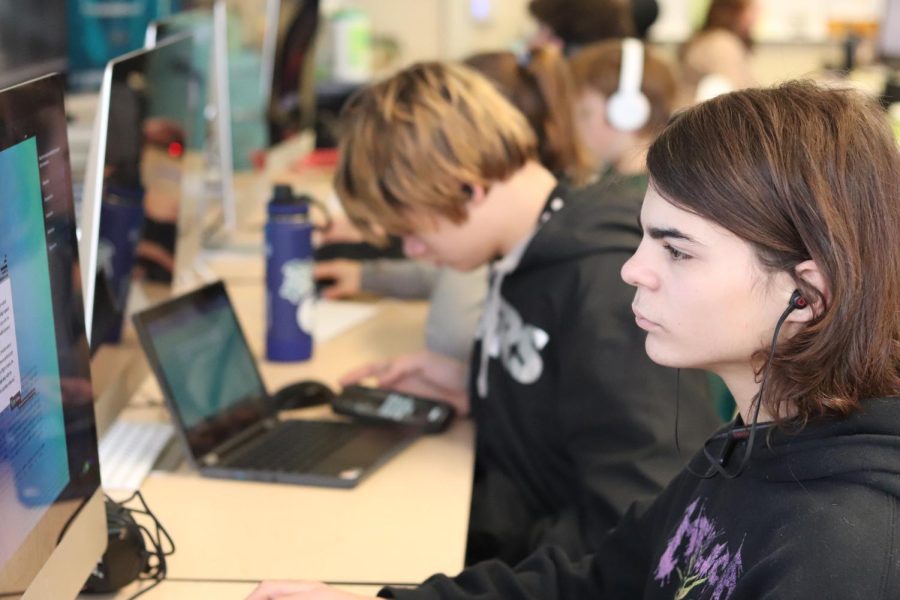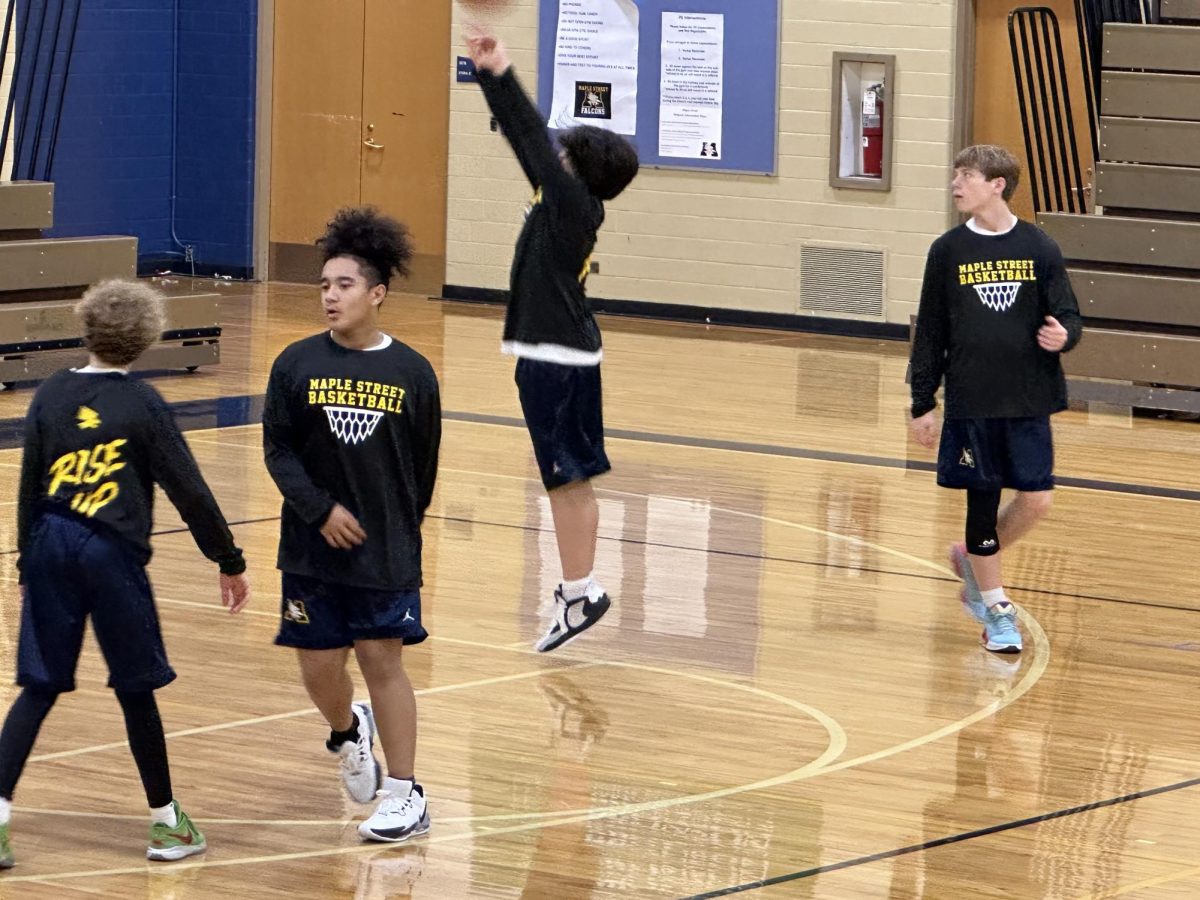Music in the classroom is beneficial and helps students succeed
Credit: Miya Timmer
Freshman Elijah Reigle listens to music while working on an assignment. He states that it blocks out other background noises so it’s easier to concentrate.
February 15, 2023
 Walking into a classroom and seeing the majority of the students with earbuds in would be shocking to someone who hasn’t been in school for the last half decade.
Walking into a classroom and seeing the majority of the students with earbuds in would be shocking to someone who hasn’t been in school for the last half decade.
Within the past few years, advancements in technology have given more young people access to devices such as phones, computers and headphones in the classroom. No matter if it’s a student’s personal device or if it belongs to the school, there is most likely a way for them to find a way to listen to music.
Music is a beneficial tool for many students in the classroom for varied reasons.
“It helps with my anxiety,” said sophomore Dominic Lafuente. “My teachers don’t really care because I’m smart and I get my things done.”
According to ASCAP, “Studies have found that listening to music can help calm your nervous system and lower cortisol levels, both of which can help reduce stress.”
Many students listen to music during tests or other high pressure assessments for this reason.
According to a study found by Stanford, music engages the part of your brain that controls your focus which makes you more engaged with what you’re doing and improves your memory.
Music in the classroom doesn’t only affect students, teachers have their own opinions and policies on the topic.
“I don’t have a problem with students listening to music in class if you have a playlist or if it’s just playing through,” said Norrix math teacher Zena Blake. “The only problem is when it becomes a distraction, if you have to pick up your phone to change songs or do whatever. It can be helpful, but it can also be a hindrance.”
Many teachers take into consideration the benefits of music in the classroom. Therefore, some teachers will put on music for the whole class or they’ll let students listen to their own music.
“Generally, I’m always playing music in the background or trying to be,” said Blake. “I don’t mind if students are listening to their own music, but again it’s just a problem if the phone becomes a distraction.”
Listening to music while doing work is a form of multitasking. Multitasking can weaken someone’s grasp on what they’re supposed to be doing, and it can make things difficult to remember. According to ResearchGate, Millennials and Generation Z are more efficient multitaskers than older generations such as Baby Boomers. Therefore, students today can work more successfully while multitasking than older generations would.
According to CSI Now, listening to music that you enjoy enhances your mood.
The mood you’re in plays a big part on your mental focus and willpower; therefore, the better the mood you’re in, the better you’ll perform. Listening to music in class also creates a positive learning environment, releases tension, increases motivation and it can even improve your memory.
“Music puts me in a different mindset,” said freshman Alex Roberts, “so depending on what I need to do, I’ll listen to different music and it’ll get me in the mood for what I need to do.”
Whether it’s for blocking out background noise, keeping themselves focused, or just because they like music, students have their reasons for listening to music in class.













Dyami Hernandez • Feb 16, 2023 at 3:18 pm
While this article raises some good points, I think it misses the mark on others. While there is research to support that listening to music helps increase mood and focus, it has also been observed that the type of music a person listens to can have a positive or negative effect on focus. Furthermore, a lot of these examples focus on independent work or studying, but don’t address listening to music during instruction. In the classroom, most teachers have to fight with students who are trying to listen to music while the lesson is happening, not when students are given time to work.